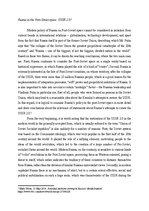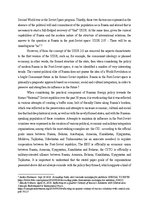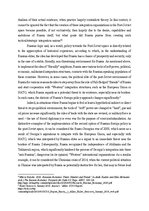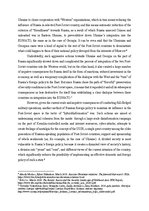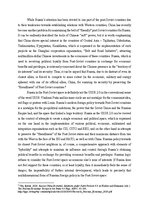-
Russia in the Post-Soviet Space
Russia in the Post-Soviet space is definitely not the USSR 2.0 in the conventional sense of the word USSR. Vladimir Putin and his inner circle are not nostalgic for the communist idea, red flags or posters with Lenin. Russia’s modern foreign policy towards Post-Soviet countries
is a nostalgia for the geopolitical ambitions, the power that the Soviet Union and the Russian Empire had, and the space that linked a huge territory. Russia as the USSR 2.0 can be viewed in the context of attempts to create a single economic and political space, which is expressed
on the one hand in the implementation of various political, economic, militarized and integration organizations such as the CIS, CSTO and EEU, and on the other hand in attempts to preserve the “friendliness” of the Post-Soviet states and their maximum distance from ties with the West in the face of the EU and NATO, as well as with China. Russian policy towards its closest Post-Soviet neighbors is, of course, a comprehensive approach with elements of
“hybridity” and attempts to maintain its influence and control through Russia’s obtaining political benefits in exchange for providing economic benefits and privileges.…
Modern policy of Russia on Post-Soviet space cannot be considered in isolation from current trends in international relations – globalization, technology development, and apart from the fact that Russia itself is part of the former Soviet Union, describing which Mr. Putin says that “the collapse of the Soviet Union the greatest geopolitical catastrophe of the 20th century” and “Russia – one of the biggest, if not the biggest, divided nation in the world”. Based on these two theses, it can be drawn far-reaching conclusions, where the two main ones are: First, Russia continues to consider the Post-Soviet space as a single entity based on historical experience, in which Russia played the role of a kind of “center”; Second, Russia is extremely interested in the fate of Post-Soviet countries, on whose territory, after the collapse of the USSR, there were more than 25 million Russian people, which is a good reason for the implementation of integration processes, “soft” power and geopolitical ambitions of Russia. It is also important to take into account a certain “nostalgic” factor – the Russian leadership and Vladimir Putin in particular are, first of all, people who were formed as persons in the Soviet Union, which may lead to a reasonable idea about the Kremlin’s attempts to restore the USSR. In this regard, it is logical to examine Russia’s policy in the post-Soviet space in more detail and draw conclusions about the relevance of statements about Russia’s attempts to create the USSR 2.0.
PDF formāts.

